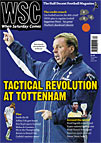 Dermot Corrigan on the sad fate of Drogheda, after they nearly knocked Dynamo Kiev out of the Champions League
Dermot Corrigan on the sad fate of Drogheda, after they nearly knocked Dynamo Kiev out of the Champions League
In August, Irish champions Drogheda United came within inches of eliminating Dynamo Kiev from the Champions League. Midfielder Shane Robinson saw his injury-time cross-shot diverted on to a post by Kiev keeper Taras Lutsenko, before the ball agonisingly rolled across the goalline with no Drogheda player on hand to tap home. Minutes earlier Adam Hughes had somehow fired over an open goal from six yards. The rattled Ukrainians held out to sneak through 4-3, then hammered Spartak Moscow 8-2 on aggregate to seal their place in the group stages. Drogheda were left ruing what might have been.
The Drogheda players’ recent thoughts are likely to have been more prosaic, as they dwelled on issues such as how to pay their mortgages or put food on their family’s table. On October 9 they were told by club chairman Vincent Hoey that they would not be paid for the rest of the season. A week later the club went into receivership with reported debts of over €732,000 (£590,000) and were docked ten points. This deduction could be moot, as they may well disappear completely before the new season starts next spring.
Things were much different just 12 months ago. A (relatively) expensively assembled team, managed by Eircom League legend Paul Doolin, cruised to Drogheda’s first ever national league title. This came after two Setanta Sports Cups and an FAI Cup in the preceding two years. The glory times had come to the previously yo-yo, small-town club. This season saw them ease past Estonian champions FC Levadia Tallinn 3-1 on aggregate, before running Kiev so close.
Such achievements were possible because of the estimated €8 million that had been poured into the club since 2004, when Hoey and fellow directors Christopher Byrne and Eugene O’Connor rolled out their master plan. They aimed to sell current ground United Park, which holds only 2,000 fans, and use the proceeds to fund a €35m 10,000-seat stadium outside the town, while also developing residential units, offices and leisure facilities on the old site. The idea was initially hailed as visionary, and the board does appear to have the best interests of the club at heart, but planning issues have bedevilled the project and it remains on the drawing board. Meanwhile, their financial over-reach means that Drogheda’s 27 players and 12 staff could well be out of a job by Christmas.
Financial problems for apparently successful League of Ireland clubs are nothing new. In 2004, Shelbourne knocked Hajduk Split out of the Champions League and drew 0-0 with Deportivo La Coruña in front of 25,000 fans at Lansdowne Road; two years later Shels had to sell their entire squad and they are now in the Eircom League’s lower division. In August, 2005 champions Cork City entered examinership (the Irish version of receivership) with reported debts of €800,000.
Dramatic collapses such as these were supposed to have been made impossible by the Football Association of Ireland’s decision to take control of the league last year. A new licensing scheme heralded by FAI chief blazer John Delaney was supposed to ensure that clubs had the financial structures in place to fulfil all their responsibilities. This scheme appears to have failed miserably. A third of the league’s clubs, including five from the top division, have reneged on paying players in full this season. A mix of low attendances, falling sponsorship, negligible TV deals and plain mismanagement all contribute to a painful financial situation for most clubs.
Drogheda have until November 30 to convince the FAI that they deserve a league licence for next season. The board say that two sites are being considered for a new stadium, and that several potential buyers, including an investor from the UK, have shown an interest. But if Drogs do survive, interest will inevitably turn to who is next in the boom-and-bust cycle of Irish domestic football.
The good news is that Cork seem to have negotiated their way back to solvency, and should survive. However, this season’s champions Bohemians invested heavily to secure the title, after announcing plans in 2006 to sell their current ground – former national stadium Dalymount Park – for redevelopment and relocate to a green-field site on Dublin’s outskirts. The potential goldmine – €60m has been mentioned – is far from a certainty, with a land-ownership dispute currently working its way through the High Court. In September Bohs announced an annual loss of €530,000.
Much publicised plans for a perhaps more viable 12-team all-island league appear to be on the back-burner now. Although supported by clubs from both sides of the border, political implications within the FAI and IFA make it look unlikely to appear any time soon. Meanwhile, Eircom has said it will not extend its ten-year sponsorship of the League of Ireland when it runs out this December, and the wider economy is sliding into recession. These are difficult times for all involved in Irish domestic football, not just those Drogheda players who came so close to Champions League glory.
From WSC 262 December 2008